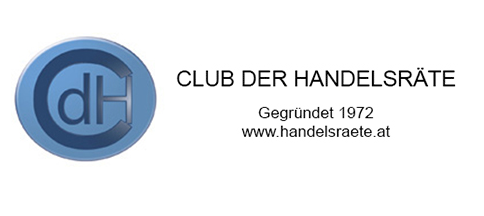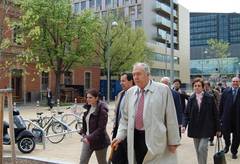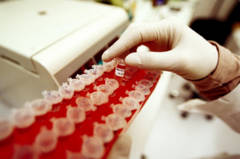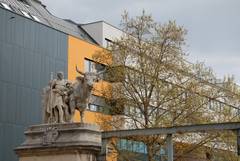Vienna Biocenter
In April the CdH visited the Campus Vienna Biocenter, one of the most outstanding and prominent life sciences hubs in Austria.
Mr. Stefan Grünert, business manager of Biolution (an agency for science communication specialised in life sciences, located on the campus), gave the trade delegates an overview of the development of the campus and its "inhabitants": the Campus Vienna Biocenter includes more than 15 complementary players in the field of life sciences. Since access to state-of-the-art facilities and infrastructure has become an important and decisive element for cutting edge research, the CVBC has developed a vision for the communal use of infrastructure. Currently, around 1.400 scientists are working and 700 students are studying on the Campus. Ten companies, four basic research institutes, one university of applied science, one science communication association and one public relations agency have all settled on the Campus Vienna Biocenter.
With the foundation of the Research Institute of Molecular Pathology (IMP) the nucleus for the Campus was established in 1988. Very quickly a University building went up next door and five departments were relocated there. Subsequently, the Austrian Academy of Sciences founded two new research institutes, IMBA and GMI, situated next door to the IMP.
Besides research institutes and international brands, like Baxter, several start-up companies and spin-offs are located on the campus; like Affiris, developing vaccines targeting Alzheimer's disease or Parkinson's disease, together with partners like GlaxoSmithKline (GSK); or Apeiron, focusing on research and development of biological and immunological approaches to treat cancer and related conditions; or Eucodis Bioscience, an application-driven enzyme engineering company with customers in the pharmaceutical, biotechnology, diagnostics, and other industries. One of the most prominent ones is Intercell, striving for novel vaccines for the prevention and treatment of infectious diseases. Intercell's first product on the market is a vaccine for the prevention of Japanese Encephalitis.
To be able to compete at the forefront of science, Campus Science Support Facilities Gmbh (CSF) was established to provide scientific infrastructure, which will be operated and constantly further developed by highly qualified experts. Founded in 2010, the CSF is a not-for-profit organisation funded by the Austrian Ministry of Science and Research together with the City of Vienna.
The Campus continues to foster the Viennese tradition of diversity and will strive to continue its impressive development by building on its most prized assets, the ingenuity of its people, by providing them with an attractive work place. Over the next years 40.000 m² additional office and lab space will be created.





